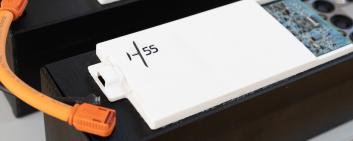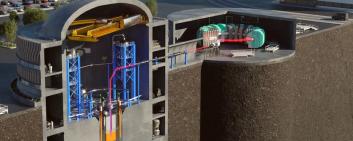The energy revolution is underway and Switzerland is in the driver’s seat. After six years of exploratory work, Romande Energie, the leading electricity distributor in Western Switzerland, unveiled the first part of its floating solar project in Bourg-Saint-Pierre, in the canton of Valais. The floating solar panel station consists of 36 floating barges featuring 2,240 square meters of solar cells targeting to deliver 800,000 kilowatt-hours per year, the annual power consumption of approximately 220 households. If the project is deemed to be feasible after a two-year trial period, the park will be expanded to produce power for some 6,100 households.
Improved efficiency
At 1,810 meters above sea level, the floating station is expected to produce up to 50% more energy than a solar farm of the same size located at sea level. This can be explained by the strong reflection of the light on the snow, which increases the efficiency of the solar panels. On the downside, the installation will have to face extreme weather conditions, which is why the structure can support up to 50cm of snow.
Supported by the Swiss Federal Office of Energy
The project, whose impact on the landscape and the environment remains limited, is supported by the Swiss Federal Office of Energy. “We support this type of innovative project, which has real potential both in terms of energy and economic impact. In this case, our support is 670,000 Swiss francs over three years. We are particularly interested in the projected production in winter”, says Karin Söderström, Cleantech specialist.







